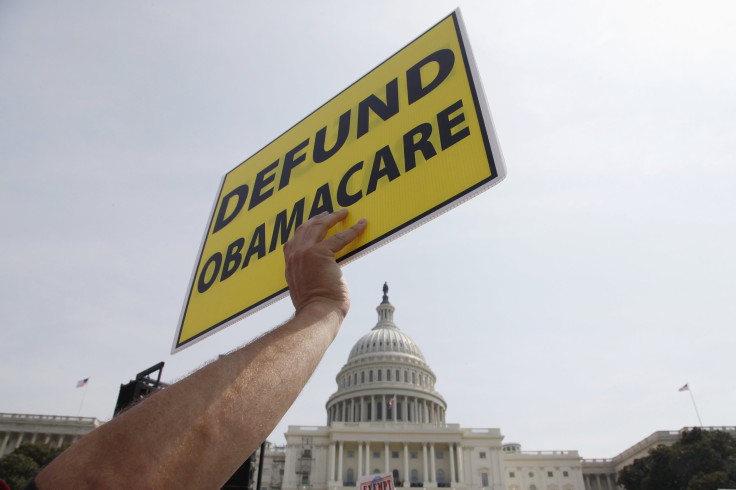Under Obamacare, Premiums Will Go Up, Way Up

As I’ve said earlier I predict that a year from now we’ll see much higher premiums for Obamacare. While that spells bad news for the Democrats, it also should give Republicans some food for thought as we enter the 2014 Congressional election cycle. The reason for the bad news/caution is the same: the first to sign up will be high-demanders of medical services, and there are (literally) millions of them.
Who are these people? A lot of them will be those who want to be on Medicare but don’t qualify. The first group consists of people under age 65 (the Medicare eligibility age), who receive Social Security early retirement benefits. According to the Social Security Administration by the end of June 2013 about 3.3 million workers aged 62 (the minimum age for early retirement) through age 64 were receiving early retirement benefits. While some of the 3.3 million may get health insurance via COBRA continuation coverage (continuation of their employer’s insurance coverage), it’s not cheap.
That’s because the worker has to pay his/her share of the premium, plus the employer’s share, plus administrative expenses. COBRA also is time-limited to 18 months after employment, thus workers applying for early retirement at age 62 or 63 would see their COBRA benefits expire before they’re eligible for Medicare. Thus, these 3.3 million people, COBRA-covered or not, are likely to look at the premiums offered through the exchanges and see a pretty good deal. It’s also a simple actuarial fact that this population will want a higher level of medical services than, say, a typical 30- year-old.
The fact that Obamacare requires exchange insurers to pay for 100 percent (no co-pays) for services that an older population wants (e.g., colonoscopies and mammograms) makes this type of health insurance even more attractive to those 3.3 million.
In the second group are workers who applied for Social Security disability benefits but were denied. If approved, these workers would have been eligible for Medicare. But as of last year, the Social Security Administration approved about 35 percent of applications.
By my calculations, this resulted in 1.8 million people who are not working due to a perceived medical condition and had sought Medicare benefits, but didn’t get them. Since they’re not working, many in this group are probably eligible for an Obamacare subsidy, reducing their premium costs if they get insurance through the exchange. Since these people already think they’re too sick to work, I expect many of the 1.8 million will take the subsidies and sign up for insurance. But it’s reasonable to expect they too will be high users of medical services.
Looking at just these two groups, you can see why I anticipate the news in September 2014 to be that premiums are going up – way up. That’s not good for Democrats who, after all, totally own Obamacare – a law that had zero Republican votes in the Congress when it was passed in 2010.
On the other hand, I think Congressional Republicans need to take a hard look at the numbers and be prepared for tough town hall meetings next year. Many current House Republicans were not in Congress in 2005. That’s when their predecessors took a beating from irate constituents over President George W. Bush’s proposal to allow workers to divert some of their Social Security taxes to “private retirement accounts." Next year, the town halls could be filled with angry early retirees and others who don’t qualify for Medicare and don’t want their new health care benefits disturbed. That prospect makes it imperative for the GOP to unify behind a coherent alternative to Obamacare.
With a real alternative to Obamacare, Congressional Republicans won’t have to respond to an angry town hall attendee with the words, “well, there this bill out there ….”, or, as Senator Mike Lee (R-UT) said on CNN yesterday, “there are a lot of proposals that we can consider.” Hand-waving by Congressional Republicans to unseen, unknown bills and proposals is not enough to defeat Obamacare. House and Senate GOP members need to remember this succinct Public Policy Process Law #8 from the Leadership Institute: “You can’t beat a plan with no plan.”
Joanne Butler is a graduate of the Kennedy School of Government at Harvard University and a former professional Republican staff member at the U.S. House of Representatives Ways and Means Committee.
© Copyright IBTimes 2025. All rights reserved.





















